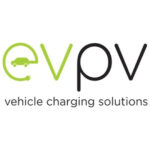- +441217586456
- [email protected]
- 33 All Saints Drive B744AG
EV Charging, Solar PV & Battery Storage Birmingham





Welcome to EV-PV: Premier Solar PV Installers Birmingham
At EV-PV, we are committed to transforming how you harness solar panel energy. As a top Solar PV installer Sutton Coldfield, we focus on providing smart solar solutions. We are renewable energy experts. We design our services to meet your specific energy needs, we do this with a solar site survey.
Why Choose Solar Energy?
Solar energy is not just a trend—it’s a sustainable energy choice for the future. Choosing solar PV systems helps you cut your carbon footprint, give you energy savings, and boost your property’s value. Our team of experts is here to help you with every step of the installation process. We will make sure you have a smooth switch to clean energy.
Our Services
- Custom Solar Installations: We design and install solar PV systems. Our systems maximise efficiency and performance for homes and businesses. We also carry out all the application with National Grid. That’s the G98 or G99 paperwork including any planning permission required for example with listed buildings.
- Energy Audits: Our professionals conduct comprehensive energy audits to help you understand your energy usage and identify opportunities for solar integration.
- Maintenance and Support: We provide ongoing maintenance and support. This helps your solar panel system run at its best for many years.
Why EV-PV?
- Expert Team: Our skilled technicians have extensive experience in solar technology and installation. We’ve been installing Solar PV for 14 years. We are the top solar pv installers Birmingham.
- Quality Assurance: We use only the highest quality materials and cutting-edge technology to ensure durability and efficiency. The Solar PV Panels we use are all top end quality materials.
- Customer-Centric Approach: Your satisfaction is our priority. We work closely with you to understand your needs and deliver solutions that exceed your expectations.
Start Today!
Ready to make the switch to installing solar panels? Contact us for a free consultation. We can help you take the first step toward a more sustainable future. Let us show you how to harness excess energy.
Join the growing community of eco-friendly people and businesses in North Birmingham. They are enjoying the benefits of solar energy.
EV-PV are Solar PV Birmingham.
Birmingham City Centre
Sutton Coldfield
Solihull
Harborne
Jewellery Quarter
Selly Oak
Edgbaston
Stourbridge
Walmley
Kings Heath
Streetly
Moseley
Dorridge
Bournville
Barnt Green
Knowle
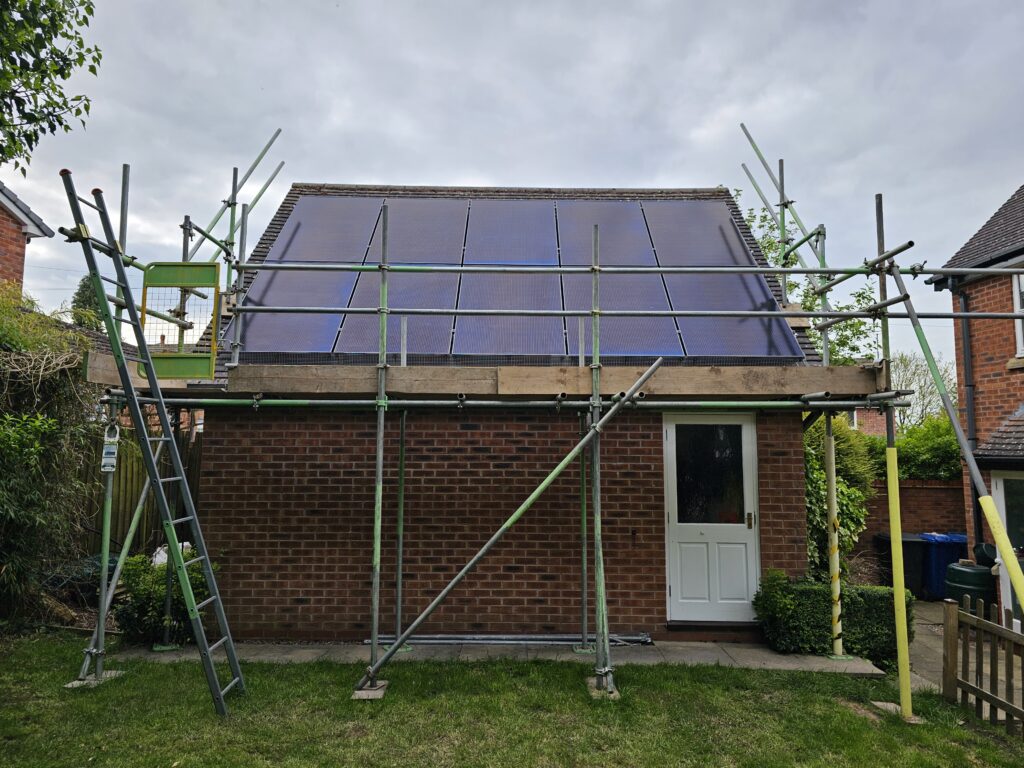
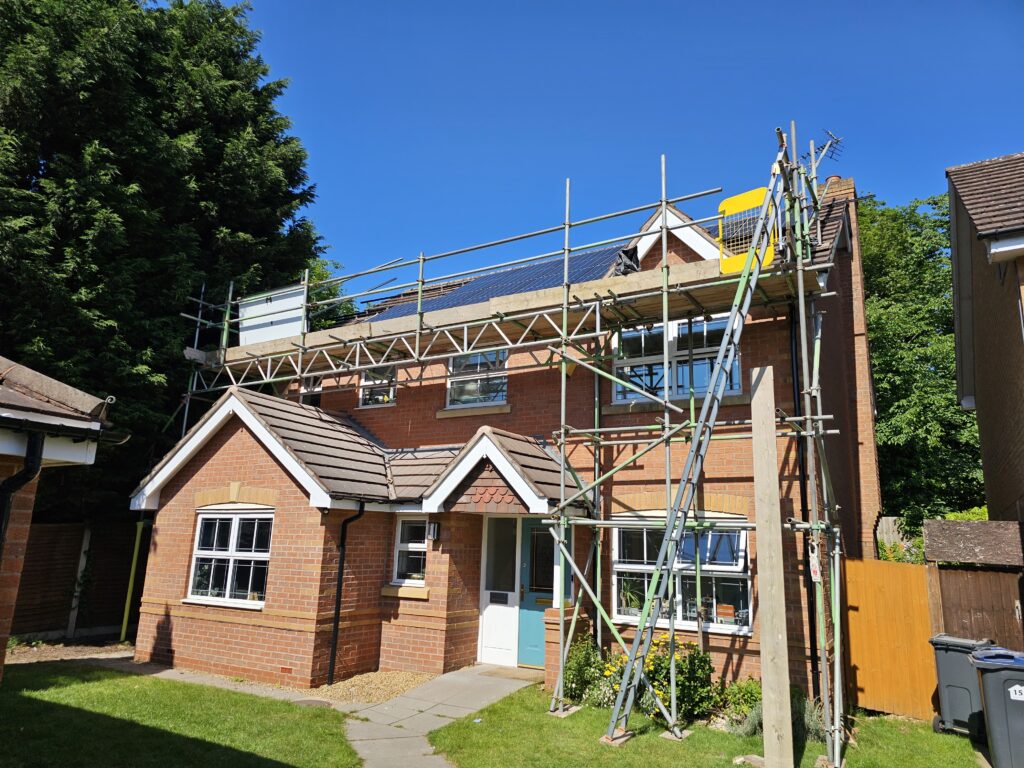
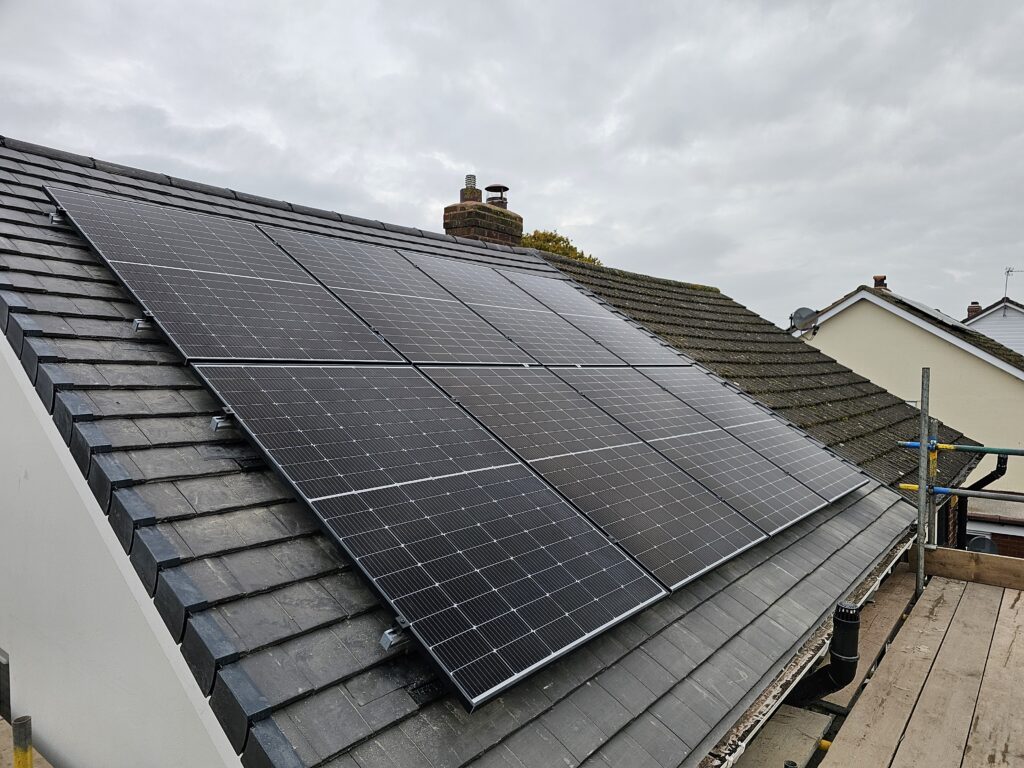
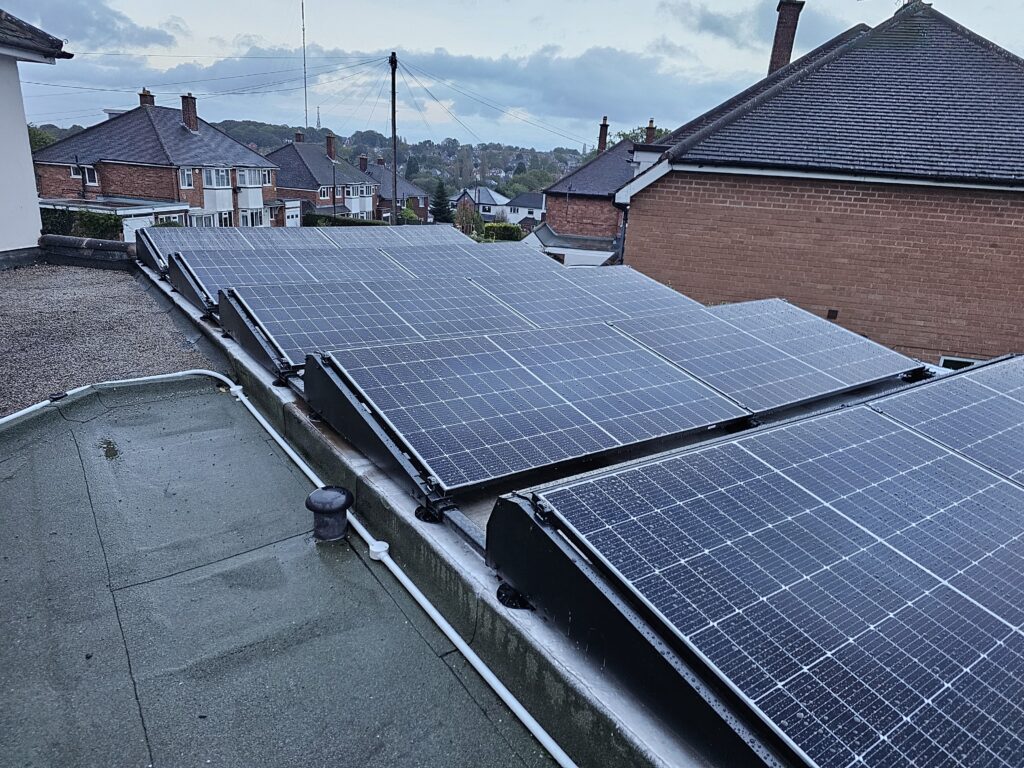
Solar PV Installs for Properties Across Birmingham
Our services extend to a wide range of neighborhoods, ensuring that no matter where you are in Birmingham, we’ve got you covered. Here are some specific areas we serve:
Edgbaston
Located just southwest of Birmingham city center, Edgbaston is known for its leafy streets and beautiful homes.
Four Oaks
A suburban area in Sutton Coldfield, Four Oaks offers a community feel with excellent amenities.
Harborne
This vibrant neighborhood is renowned for its bustling high street and strong community spirit.
Moseley
Moseley boasts a bohemian vibe with plenty of independent shops and green spaces.
Solihull
A little further out, Solihull combines the best of suburban living with close proximity to Birmingham.
Sutton Coldfield
Known for its parks and family-friendly environment, Sutton Coldfield is a popular choice for many.
Selly Park
Close to the University of Birmingham, Selly Park is ideal for both families and students.
Wylde Green
Another gem in Sutton Coldfield, Wylde Green is appreciated for its quiet, residential streets and excellent schools.
By presenting this comprehensive list, we aim to reassure our clients that our services are accessible throughout Birmingham and beyond. Whether you’re in the bustling city center or a peaceful suburb, we are here to meet your solar installation needs.


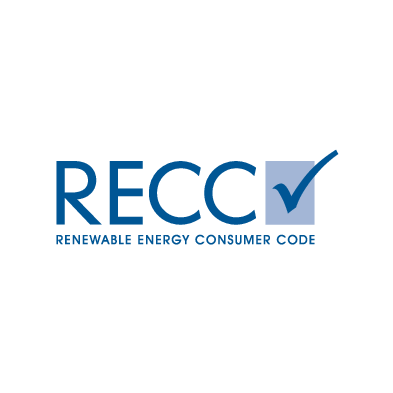

We’re proud to be MCS registered solar installers based in Birmingham. This certification ensures that we meet the highest standards for quality and service in the installation of solar energy systems. Whether you’re considering solar panels for your home or business, you can trust our expertise to guide you through the process.
As MCS registered installers in Birmingham, we’re here to make the process seamless for you. We can handle all the necessary paperwork to help you apply for the Smart Export Guarantee (SEG) payments. This means you can focus on enjoying the benefits of your solar energy system while we take care of the details!
Deciding whether solar panels are right for your home depends on several factors, including your location, available sunlight, energy usage, budget, and your long-term goals for energy sustainability. Here are some factors to consider:
- Location and Sunlight: Solar panels require sunlight to generate electricity effectively. If your home is in an area with ample sunlight throughout the year, it can be a good location for solar panels. However, if your home is heavily shaded or does not receive a significant amount of sunlight, solar panels may not be as efficient.
- Energy Usage: Assess your current energy consumption and consider whether it aligns with the potential benefits of installing solar panels. If you have high energy usage, solar panels can help offset your electricity costs and potentially save you money in the long run.
- Financial Factors: Evaluate your budget and financial incentives available for solar panel installations. Solar panel costs have decreased in recent years, making them more affordable. Additionally, there are what’s called ‘SEG’ payments to help offset the installation costs. This means you get paid for sending excess energy back to the grid.
- Environmental Impact: If you are environmentally conscious and want to reduce your carbon footprint, installing solar panels can be a significant step towards renewable energy generation. Solar panels produce clean, renewable energy and can help reduce your reliance on fossil fuels.
- Long-term Goals: Consider your long-term goals for energy sustainability and your duration of stay in your current home. Solar panels typically have a longer payback period but may provide long-term savings in electricity bills and potentially increase the value of your property if you plan to sell in the future.
Typical Costs of Solar Installations
The cost of a solar installation depends on several factors like system size, placement, installation needs, product quality, and labor. Here’s a breakdown of typical costs:
Commercial Systems:
- 50kW – £55,000
- 100kW – £85,000
- 250kW – £200,000
- 500kW – £370,000
Domestic Systems:
- 1.2kW – £5,000
- 3kW – £7,000
- 6kW – £12,000
The Installation Process
- Initial Contact: When you first reach out to a solar installation provider, they will discuss variables like system size and your specific needs, providing an indicative estimate for you to consider.
- Site Survey: If you’re happy with the estimate, a survey of your site will be conducted to examine your roof or land space, sunlight access, and any unique needs. This helps tailor the perfect system design and installation plan.
- Detailed Proposal: A final proposal will be provided, outlining the full costs and expected energy savings so you can make an informed decision.
Personalised Estimates
To get a no-obligation quote tailored to your specific needs, contact a reputable solar panel installer. They can evaluate your energy needs, assess your location, provide accurate cost estimates and potential savings, and help determine if solar panels are the right choice for your home.
In the UK, installing a home Electric Vehicle (EV) charger typically does not require planning permission, as long as specific conditions are met. Per government guidelines, installing an EV charger is generally considered a permitted development and falls under “permitted development rights” for residential properties. However, there are a few key factors to consider:
- Location: The charger should be installed on the property, typically in a driveway or garage, rather than on a public highway or footpath.
- Appearance: The charger should be installed in a way that does not significantly alter the external appearance of the property. This means avoiding major modifications or alterations to the property’s frontage, particularly in visually sensitive areas such as conservation areas.
- Safety: The installation must comply with all safety regulations, including the use of approved charging equipment and the involvement of a qualified professional electrician.
- Listed Buildings and Designated Land: If the property is a listed building or falls within designated land (e.g., National Parks, Areas of Outstanding Natural Beauty), additional restrictions and permissions may apply.
It is always recommended to contact your local planning authority or consult with a qualified professional to ensure compliance with any local regulations or specific circumstances that may require planning permission for an EV charger installation.
Do you need planning permission to install solar panels on your property?
If planning permission is needed, we can provide full support with applications to streamline the process. Some key limits are:
- A roof-mounted solar installation must not protrude more than 200mm, unless it is a flat roof installation where the solar PV must be less than 1m above the highest part of the flat roof.
- A roof-mounted solar installation must be further than 400mm away from the edge of the roof or wall joint. For Areas of Outstanding Natural Beauty (AONB) or similarly restricted locations, the panels must not be on the roof slope or wall facing the road.
- Solar installations should be sited so as to minimize their effect on the external appearance of the property and the amenity of the area. Unused equipment should be removed as soon as possible.
Listed buildings, scheduled monuments, and world heritage sites require permission. We advise on requirements and assist with applications for quick approval.
Balancing the needs of both EV chargers and solar panels
When considering both EV chargers and solar panels, it is crucial to ensure that all installations comply with local regulations and aesthetic guidelines. Both types of installations can generally be considered permitted developments, but special cases like listed buildings or properties in designated areas will have additional requirements.
Always consult with your local planning authority or a qualified professional to navigate the specifics of your situation. Whether you’re looking to charge your electric vehicle or harness solar energy, proper planning ensures a smooth and compliant installation process.
Installation Process Overview
For most residential properties, planning permission is usually unnecessary unless you live in a listed building or a designated conservation area. Ground-mounted panels have a few size limitations and distance requirements from your property. If you’re unsure about your specific situation, it’s always best to consult a professional.
Commercial installations often follow the same guidelines as residential setups. However, professional guidance is essential for navigating any additional regulatory requirements. Experts can handle all necessary planning and liaise with your Distribution Network Operator (DNO) to ensure proper connection to the electrical grid.
Pre-installation Survey
A thorough pre-installation survey is the first step. Two key technical team members will visit your site to discuss scaffolding and access needs, agree on the installation approach, and resolve any potential issues. They’ll finalise an installation date to ensure everything runs smoothly.
Installation Day
A week before installation, a scheduler will confirm start dates, deliveries, and any scaffolding requirements. Throughout the installation, the scheduling team and a site contact will keep you updated. With over a decade of experience, professionals aim to make the process seamless from beginning to end.
On the final day, a team member will walk you through the newly installed system and explain its functionalities. If you’ve opted for online monitoring, you’ll be registered for it immediately.
Post-installation Support
After completion, electricians will provide a detailed schematic of your new solar setup, along with an electrical certificate, a solar array test report, and a full Operations & Maintenance Manual. If your system qualifies, you’ll receive a Microgeneration Certification Scheme (MCS) certificate within a few days.
Aftercare
The entire installation is typically under a two-year warranty, covering any arising issues. Experts are available for remote or on-site resolution as needed. An annual service and system check is recommended to ensure optimal performance. Regular maintenance helps maintain the system’s efficiency and longevity.
Site Assessment
Two experts from our technical team will conduct an on-site visit to evaluate your property’s requirements. This step is crucial for determining the types of scaffolding and access equipment needed for a seamless installation.
Installation Planning
During this visit, our team will outline the installation process in detail. We’ll discuss the logistics and ensure all necessary tools and materials are prepared in advance to avoid delays.
Problem Resolution
If any issues arise during the survey, such as obstacles in wiring routes or design challenges, we’ll work with you to develop a practical solution. This might involve selecting an alternative cable path or making minor design adjustments.
Scheduling
When you schedule your pre-installation survey, you’ll receive a preliminary installation date. After the site visit, we’ll confirm the exact installation date based on the findings and any necessary adjustments.
When considering solar panel installations, several key factors influence the overall cost. Understanding these can help you budget effectively and make informed decisions.
1. System Size
The size of the solar system plays a crucial role in cost determination. Larger systems require more panels and additional equipment, which increases the expense.
2. Placement and Site Conditions
Where you plan to install the panels significantly affects the cost. Roof installations may vary in price compared to ground-mounted systems due to different structural requirements. Additionally, if your roof or land space isn’t optimal, extra work may be needed.
3. Installation Needs
Every project has unique installation needs. Complex installations, such as those requiring special mounting equipment or extensive electrical work, tend to be more costly.
4. Product Quality
Not all solar panels are created equal. High-quality panels from well-known brands like JA Solar, REC or Solaredge might come at a premium, but they often offer better efficiency and longevity.
5. Labor Costs
The cost of labor can also vary. Experienced and certified installers might charge more, but their expertise can ensure a smoother installation process and better system performance.
6. Site Survey and Customisation
A detailed site survey assesses factors like sunlight exposure, shading, and roof integrity. Customising the system to fit your specific site can involve additional costs but ensures optimal performance and savings.
Making an Informed Decision
Combining all these factors gives a comprehensive view of the potential costs associated with solar panel installations. A thorough proposal from your chosen provider will outline these aspects, alongside detailed cost estimates and projected energy savings, enabling you to decide confidently.
How to Get a Solar Panel Installation Quote
Are you considering solar energy for your home or business but unsure where to start? Follow these steps to get a comprehensive quote for your solar panel installation.
1. Initial Inquiry
To begin, you can reach out through multiple channels: an online form, live chat, phone call, or an email. Each of these methods will connect you with our team, ready and eager to assist you.
Upon receiving your inquiry, one of our surveyors will either call you or send you a customer information form. This form will help gather essential details about your project and property, including your current electricity costs, energy usage, and available space for panels. We may also use satellite imagery to assess the site.
2. Pre-Installation Assessment
If your project progresses to the next stage, we’ll schedule a site visit. During this visit, our surveyor will evaluate your roof and external spaces to determine the optimal layout for your panels, inverters, and cable runs. This hands-on assessment helps us understand the specifics of your project, providing accurate cost estimates.
This visit is also a great time to discuss various products and warranties, ensuring that all your questions are answered.
3. Personalised Quote
Once the on-site survey is completed, our surveyor will consult with the team to address any queries you raised during the visit. Based on this comprehensive discussion, we will prepare a personalised quote tailored to your unique needs and project specifications.
4. Moving Forward
When you approve the quote, your project shifts to our operations team. We will then start turning your renewable energy plans into reality, coordinating all installation aspects from logistics to execution.
By following these steps, you can ensure that you get a thorough and accurate solar panel installation quote tailored to meet your energy needs.
Renewable Solutions for Homes and Businesses in Birmingham
Are you curious about the renewable energy options available in Birmingham? Whether you’re a homeowner or a business owner, there are several innovative solutions designed to meet your energy needs and reduce your carbon footprint.
Solar Panel Systems
One of the most popular and efficient renewable energy solutions is solar panel installation. Our experienced team can provide comprehensive services, from initial consultation to installation and maintenance. Solar panels harness the power of the sun, converting sunlight into electricity, which can drastically reduce your energy bills.
Battery Storage
To maximise the efficiency of your solar panels, consider integrating battery storage systems. These batteries store excess energy generated during the day, which can be used during the night or during peak usage times. This ensures that you always have access to clean energy, even when the sun isn’t shining.
EV Charging Stations
With the rise in electric vehicle (EV) adoption, EV charging stations are becoming a necessary addition for many homes and businesses. Installing a dedicated EV charging station not only supports sustainable transportation but also adds value to your property. Various options are available to suit different types of vehicles and charging needs.
Why Choose These Solutions?
- Cost Savings: Reduce your energy bills significantly.
- Environmental Impact: Lower your carbon footprint and contribute to a sustainable future.
- Energy Independence: Become less reliant on the grid and more self-sufficient.
Choosing renewable energy solutions not only benefits the environment but also offers long-term financial savings and energy independence. Explore these options to find the best fit for your home or business in Birmingham.
When planning for a commercial solar installation, it’s essential to understand the cost implications for different system sizes. Here are some estimated costs based on common commercial solar system capacities:
- 50kW System: Approximately £55,000
- 100kW System: Around £85,000
- 250kW System: Roughly £200,000
- 500kW System: Close to £370,000
These estimates provide a general idea of what businesses can expect to invest when moving towards solar energy. The actual costs can vary depending on specific project requirements, installation conditions, and regional factors.
When considering where to install solar panels on your property, multiple options exist to suit various types of buildings and environments.
Roof Installations
- Flat Roofs: Solar panels can easily be mounted on flat roofs using metal frames to secure them in place, optimising their angle for maximum sunlight exposure.
- Pitched Roofs: Pitched roofs also accommodate solar panels well, with structures designed to keep them firmly attached and durable under various weather conditions.
- New Roofs: If you’re installing a new roof, in-roof solar panels replace traditional roof tiles, ensuring they lie flush with the surface for a seamless look.
- Heritage Buildings: For properties with specific aesthetic or historical requirements, solar slate tiles replicate the appearance of regular slate, making them a suitable choice.
Building Facades
Solar panels aren’t limited to just roofs; they can also be integrated into the building’s facade. This method not only generates energy but can also contribute to the aesthetic appeal of modern architecture.
Ground Installations
- Large Sites: For properties lacking suitable roof space, ground installations are an excellent alternative. They allow flexibility in installation angle and size.
- Low Profile Mounting: On large properties like farms, low profile tubs provide a practical solution, keeping the panels close to the ground while ensuring livestock can still roam freely.
- Elevated Frames: Elevated frames can also be used to raise the panels, providing clearance for agricultural activities beneath them.
By considering these varied options, you can find a solar panel installation method that fits the unique layout and requirements of your property, optimising energy generation and maintaining aesthetic harmony.
Absolutely! If you’re looking to secure funding for solar projects in Birmingham, there are viable options tailored specifically for your needs.
Net Zero Grant Programme
The Net Zero Grant Programme (NZGP) is a valuable resource for small to medium-sized enterprises (SMEs) either based in or planning to relocate to the Birmingham City Council or Solihull Metropolitan Borough Council areas.
Funding Details
- Eligible Businesses: SMEs within the specified council areas.
- Grant Amount: Up to £100,000.
- Use of Funds: The grants cover enhancements aimed at improving energy and resource efficiency in business premises. This includes the installation of solar panels.
How to Proceed
- Eligibility Check: Ensure your business qualifies based on location and size.
- Application Process: Follow the specific guidelines detailed by the Net Zero Grant Programme.
- Project Implementation: Use the grant to fund solar panel installations and other energy-efficient upgrades.
By taking advantage of these grants, businesses can significantly offset the cost of solar installations, contributing to both economic savings and environmental sustainability. For more information, consider exploring resources provided by Sustainability West Midlands and other local organisations dedicated to supporting green initiatives.
Aftercare Services for Solar Panel Installations
Comprehensive Documentation: Once your solar panel system is installed, you’ll receive several important documents. These include a detailed schematic of the system layout, the electrical certificate, a solar array test report, and a comprehensive Operations & Maintenance Manual. Additionally, if your installation qualifies, a Microgeneration Certification Scheme (MCS) certificate will be sent to you within a few days of registration.
Warranty and Support: Your new solar panel system will be covered by a 2-year warranty. During this period, if you experience any issues or have concerns, our support team is just a phone call away. We are committed to resolving any problems swiftly, either by providing guidance over the phone or by dispatching a technician to your location as needed.
Recommended Annual Maintenance: To ensure your solar panel system remains in optimal working condition, we recommend an annual service and system check. This routine maintenance helps in identifying and addressing any potential issues early, ensuring long-term efficiency and performance.
By offering comprehensive documentation, robust warranty support, and routine maintenance recommendations, we aim to provide you with peace of mind and a smoothly operating solar energy system.
Stellar Customer Service
Many customers in Birmingham rave about the exceptional customer service provided by local solar panel installers. Reviews often highlight:
- Prompt responses to inquiries and detailed consultations.
- Friendly and knowledgeable staff who guide you through every step of the process.
- Efficient communication ensuring smooth project progression from start to finish.
High-Quality Installations
Feedback frequently points to the high quality of the installations. Here’s what people are saying:
- Top-notch materials and the latest technology are consistently used.
- Precise and tidy installations that exceed customer expectations.
- Durable solutions that withstand the test of time and harsh weather conditions.
Cost-Effectiveness and Savings
One of the biggest perks mentioned is the financial benefit:
- Significant reductions in electricity bills.
- Transparent pricing with no hidden fees.
- Long-term savings due to lower energy costs.
Reliable and Trustworthy
Trust is a recurring theme in customer reviews:
- Timely project completions with adherence to schedules.
- Professional and courteous installers who respect your home.
- Honest and straightforward dealings, ensuring peace of mind.
Local Expertise
Customers appreciate the local know-how:
- In-depth understanding of Birmingham’s specific energy needs.
- Experience with local government incentives and regulations.
- Commitment to the community and personalized service.
Eco-Friendly Solutions
Environmental benefits are also a significant talking point:
- Contribution to reducing carbon footprints.
- Support for sustainable energy that benefits the community.
- Positive impact on the environment recognized and valued by customers.
In summary, solar panel installers in Birmingham receive high praise for their excellent customer service, quality installations, cost savings, reliability, local expertise, and eco-friendly solutions. Whether you’re a new homeowner or looking to upgrade, Birmingham‘s installers are a trusted choice for many.
Planning Requirements for Commercial Solar Installations
When it comes to commercial solar installations, the planning requirements are generally similar to those for residential properties. However, there are unique considerations that businesses must address.
Key Points to Consider:
Permitted Development Rights: Most commercial properties can install solar panels without needing planning permission, provided certain conditions are met. These conditions typically include limits on the size and height of the installation.
Size and Height Restrictions: For standalone solar panels, the array should not exceed 9 square meters in area or 4 meters in height. Additionally, the array must be positioned at least 5 meters away from the property.
Listed Buildings and Conservation Areas: If your commercial property is a listed building or situated in a conservation area, special permissions might be required. This could involve additional documentation and approvals from local authorities.
Local Planning Applications and DNO Liaison: For more complex installations, you may need to submit local planning applications. Additionally, coordinating with your Distribution Network Operator (DNO) is vital to ensure your solar system integrates seamlessly with the existing electricity network.
Steps to Take:
Assessment: Conduct an initial assessment to understand the specific requirements based on your location and property type.
Consult Professionals: Engage with solar installation experts who can provide tailored advice and manage the planning process on your behalf.
Documentation: Prepare and submit any necessary documentation to local planning authorities and the DNO.
By staying informed and prepared, you can ensure a smooth and compliant installation of your commercial solar panels.
The Net Zero Grant Programme offers substantial financial support for businesses aiming to enhance their energy efficiency. Eligible companies can receive up to £100,000 in funding. These grants are designed specifically to cover improvements in energy and resource efficiency in business premises. For instance, the funding can be used to install solar panels, making your operations more sustainable and cost-effective.
The Net Zero Grant Programme (NZGP) is specifically designed to support small to medium-sized businesses striving to improve their energy and resource efficiency. It provides financial assistance to companies that aim to reduce their carbon footprint by implementing eco-friendly upgrades to their premises.
Key Features:
- Financial Support: Available funding can be as high as £100,000.
- Purpose: Grants offset costs for energy-efficient improvements, such as installing solar panels.
Eligibility Requirements:
- Businesses must be located within the Birmingham City Council or Solihull Metropolitan Borough Council areas.
- Both existing businesses and new enterprises moving to these regions can apply.
This initiative not only fosters sustainable business practices but also contributes to the broader goal of achieving net zero emissions.
If you have recently purchased an electric car, you may be wondering if it is safe to charge it in the rain or if rain can cause damage to the battery. After all, if you are new to the electric vehicle community, you may have heard of a home charger that attaches to a wall. Not to worry, because I am here to reassure you that electric vehicles are perfectly safe to charge in the rain and also whether water can damage the charging infrastructure in any way.
It is perfectly safe to charge an electric vehicle in the rain. Rain, snow, or shine, you can simply plug your charging cable into your car at any outdoor location and trust that most electric vehicle chargers are water-resistant and can withstand the elements.
In fact, there aren’t any risks of charging your EV in the rain at all. When it comes to using properly installed, safe electric vehicle chargers like home charging points or public charging stations, there are no risks to think about. All the major manufacturers have developed all their chargers to be fully waterproof, with high standards for the housing of the power and data ports to ensure the safety of the devices.
The exterior of the QuietEV Charger is entirely protected against water. That means even during heavy downpours, your charger wouldn’t be affected in the slightest.
An IP (Ingress Protection) Rating indicates how well an EV charger is shielded from external elements such as dust and water. The rating consists of two numbers: the first relates to solid particles (like dust and dirt), ranging from 1 to 6, with 6 offering the best protection. The second number pertains to liquid protection (such as rain), with a scale from 1 to 8, where 8 offers the highest resistance.
For Level 2 EV chargers, which are fast chargers rated at 7.4kW, standard IP ratings are generally IP54 or IP55. While a rating of 8 is typically designated for devices that can be submerged in water for extended durations, this isn’t necessary for home EV chargers. Therefore, an IP54 or IP55 rating ensures your charger is adequately protected against water.
Additionally, for electric vehicle safety, the electrical current only activates once the charging connector is securely plugged into your car’s charging port. This design prevents electric shocks even when charging in the rain.
In summary, you can safely charge your EV in the rain, though you might get a little wet.
Yes, any electric vehicle charger that is well-manufactured, adheres to regulations, and is properly installed is safe to use in the rain. A higher IP rating indicates better waterproof protection for your charger.
However, it’s important to consider the potential impact of bad weather on 3-pin plug EV charging.
3-pin plug charging has drawbacks such as slow speed, inconvenience, and potential safety risks. Additionally, charging with a 3-pin plug during rain can be problematic.
If an extension cable is required to bridge the distance between your nearest outlet and your EV, and it’s not waterproof or adequately protected from water ingress, heavy rain could pose risks like electrical fires, short-circuiting, or electric shocks.
We recommend avoiding the use of an extension cable for charging your EV during wet weather, or consider investing in a safe, reliable home EV charger designed to withstand various weather conditions.
Home EV chargers are regularly inspected to meet rigorous safety standards, and while the chance of your EV charger being struck by lightning is low, they are still vulnerable. Therefore, it’s advisable to install a Surge Protection Device (SPD) to safeguard your EV charger, vehicle, and home when charging during a thunderstorm. In summary, with an SPD in place, it is indeed safe to charge an electric car during a thunderstorm.
Local Installers Covering the Midlands
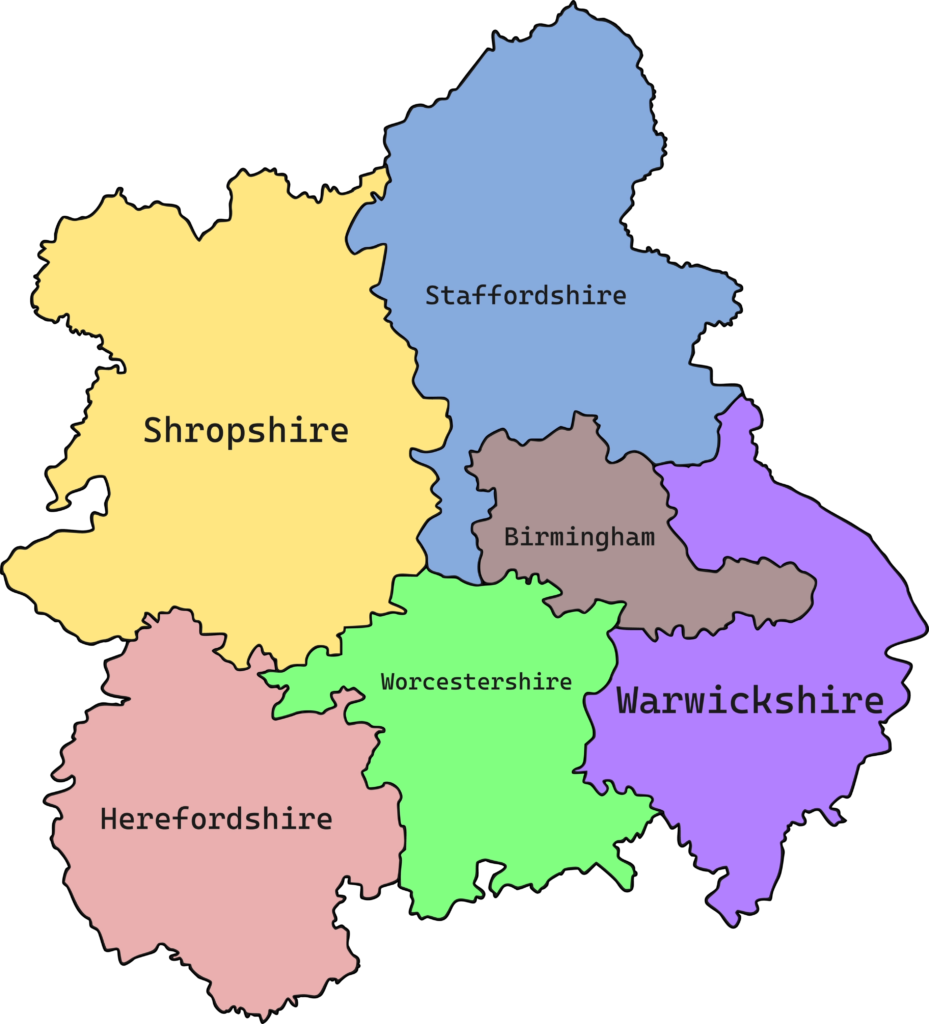
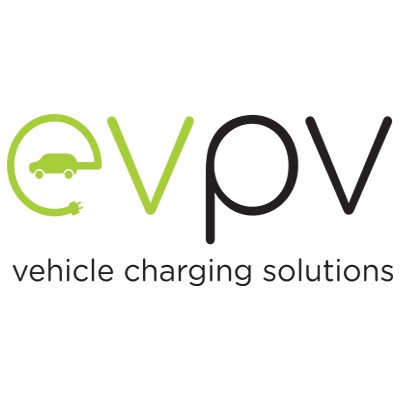
EV-PV
EV-PV is your trusted provider in the West Midlands for EV charging and solar PV solutions. We specialise in seamless installations for both residential and commercial settings. Our expert team offers tailored advice, customised quotations, and exceptional customer service. From single home charge points to multi-charger setups, we have the expertise to meet your specific needs. With a strong track record of successful installations across the Midlands, including areas like Birmingham, Edgbaston, and Bournville, we are your go-to source for sustainable energy solutions. Join us in embracing a greener future. Contact EV-PV today to learn more about our offerings.
Featured Partners
Quick Links
Get In Touch
33 All Saints Drive
Sutton Coldield
B744AG
- Email: [email protected]
- Tel: 01217586456
- Hours: Mon-Sat:8:00AM - 5:00PM
© 2025 EV-PV Ltd
